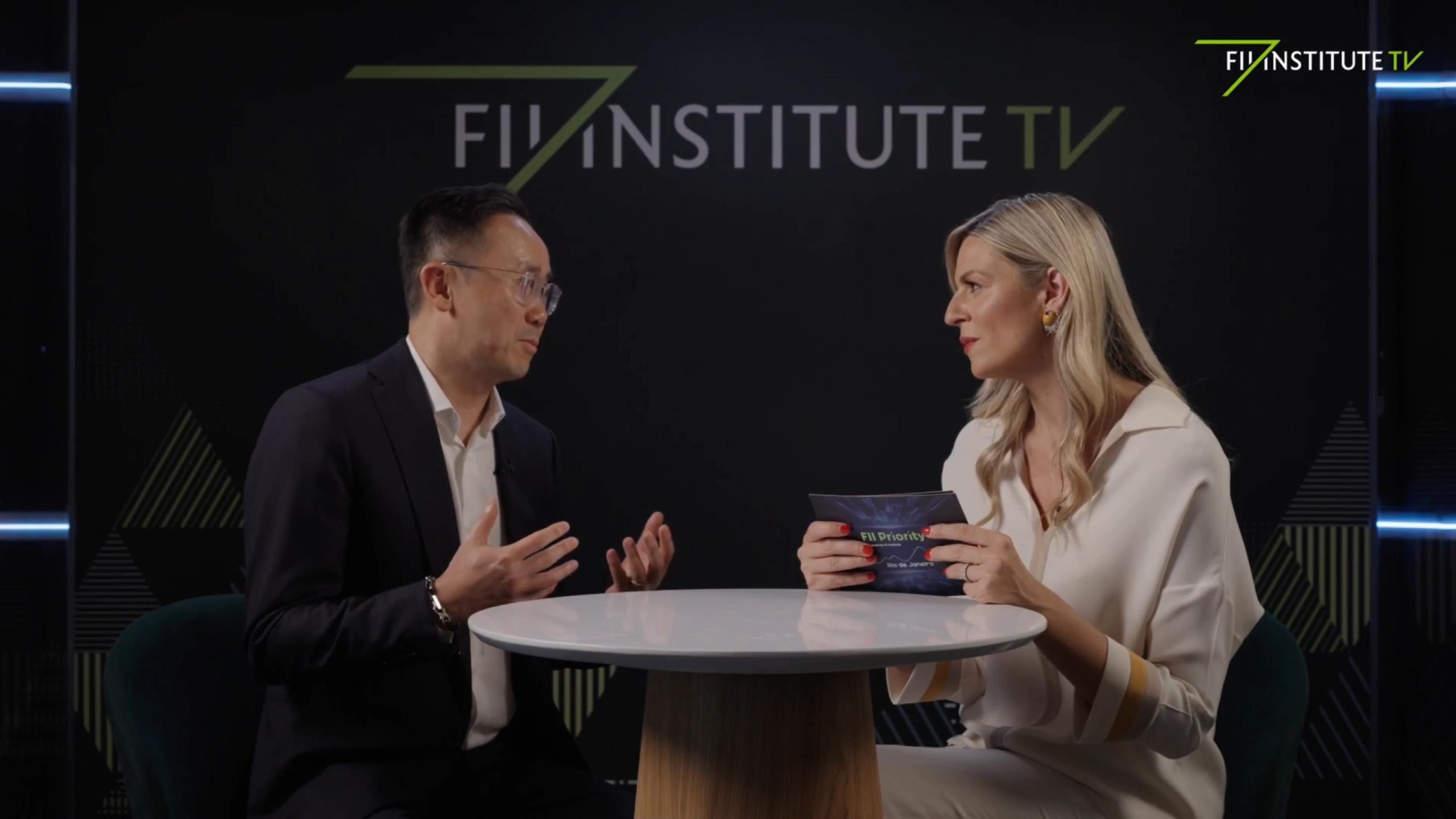During the FII PRIORITY 2024 summit in Rio de Janeiro, Patrick Zhong, Founding Managing Partner of M31 Capital, emphasized the importance of global interconnectedness, learning, and productivity gains in navigating economic downturns. Speaking to FII TV, Patrick likened cross-cultural collaboration to fusion cuisine, where the best elements from different cultures combine to create something exceptional.
Great People Should Get Connected to Talk
FII: Patrick, thank you very much for being here with us today. Before we start, please tell me about your start, your beginnings that shaped you into the person you are today.
Patrick: I am a Chinese national, but I consider myself a global citizen. Investing is a significant part of my business, and every investment I make has an impact on the world. The world is highly interconnected, and this interconnectedness is incredibly important, in my opinion. I believe it’s essential to spend time interacting with people in today’s modern world. Interacting with successful business owners can be both inspiring and educational. To use a bit of a cliche, I believe that making the world a better place is more important now than anything else.
FII: When you say connecting people, it’s not just mingling at gatherings, but you’re doing some very concrete things, aren’t you?
Patrick: Thank you for bringing that up. Last year, I brought a group of Chinese CEOs to FII. We also hosted an exceptional China breakfast, which was attended by Ray Dalio and the new CEO of Carlyle.
During the event, we had a great discussion about the world and the contributions of Chinese entrepreneurs. Last month, I organized another trip, bringing 20 top Chinese CEOs to Europe. Although the planning took some time, the meeting with their European counterparts was very productive and created a lot of chemistry.
The investors who attended the event collectively managed $20 trillion in assets, which is a significant amount. Each represented company or institutional investor wields a substantial amount of influence. In today’s world, there seems to be more division than ever. However, gatherings like the FII provide an opportunity for people to come together and engage in meaningful conversations.
I mentioned to everyone that one of my favorite books is “The Hero with a Thousand Faces.” I believe that everyone is a hero in their own right, whether in their career or within their family. They strive to be role models for the next generation and make bold contributions to their industries.
Therefore, the journeys of these heroes are pretty similar. When people come together and share their stories, they realize that they have more in common than they might have thought. Regardless of differences in background or appearance, everyone has a unique story and strives to make a positive impact. Great people must get connected to talk.

We Have to Learn When Showing Up to a New Market
FII: You are in the right place. What was your impression that Chinese investors were thinking about Europe, and we keep hearing that Europe is very quiet right now. What were they thinking?
Patrick: I believe it’s crucial for newcomers to a market to prioritize learning. What should they focus on learning? They need to understand the subtleties and develop the ability to empathize, which requires them to put themselves in the shoes of their counterparts.
So, what can we learn from European companies? Firstly, many of the most successful European companies are global in nature, meaning they generate more revenue outside their home country than within it. Over time, they consistently work on building and protecting their brand, without rushing, and maintaining consistency in their products and pricing. This could be viewed both positively and negatively.
European companies have shown a deep understanding of market cycles, a valuable lesson for everyone. They have learned to adapt and thrive, even when originating from a relatively small home market, overcoming potential limitations. They consistently demonstrate a global mindset, viewing the world as their market. They strategically establish their top R&D centers, global supply chains, and embrace local talent, not confining themselves to a single country. This global perspective is a key aspect we can learn from European companies.
FII: Do you think that business diplomacy between China and the rest of the world is back to where it was before the global pandemic?
Patrick: Investors, our collective pursuit of truth is paramount. It’s crucial that we delve into the realities of the past 30 years, a topic often overlooked in our discussions.
The actual turning point occurred in 2008 during the financial crisis. Prior to this event, economies experienced significantly stronger GDP growth compared to the post-crisis period. Additionally, public sentiment was relatively positive as countries were injecting substantial liquidity into their systems, leading to an inflated economy. However, the global economy experienced a marked slowdown, including China’s economy. This trend became even more pronounced in 2020 when the COVID-19 pandemic struck worldwide, effectively freezing economic activity for many.
And then you start to see all the negative aspects of globalization showing up. For example, when you want to order something, you can order it, but you are stuck in your house and can’t even get medical masks. So people feel very hurt by this process. Also, people didn’t see each other anymore, and companies didn’t meet each other. So even for this last trip, with the 20 entrepreneurs coming to Europe, it’s the first time since COVID at that level and scale. Consequently, upon our arrival, many people began to awaken to the reality that we should spend much time thinking about how to work together.
Productivity Gains Are Essential for Overcoming the Economic Downturn
Patrick: One important factor that could help us overcome the economic downturn is increased productivity. People often praise the excellence of Italian, Japanese, Chinese, or French cuisine.
If we look at the top chefs today, we’ll notice that they do something unique. They create what they call ‘fusion’. They gather ingredients from different places, but what sets them apart is their ability to understand the global landscape and draw inspiration from other creative industries. They then blend these diverse elements into a dish that is truly one-of-a-kind, something customers have never experienced before.
I believe we should do the same. We should recognize the high-quality ingredients, talents, and technologies that are scattered all over the world. It’s our job as investors to bring them together in a very curated, artistic, and creative way.
FII: What is the general investment climate like right now? In China? What kind of feeling do you get?
Patrick: I believe that everything goes through cycles, experiencing periods of strong and slow momentum. This is true for technology, and I think it also applies to the US and Chinese economies on a larger scale.
Approximately 25% of the economy is new every 10 years. For example, 10 years ago, no one would have expected China to produce some of the best electric vehicles in the world. Similarly, a decade ago, no one would have predicted that the Internet of Things (IoT) would potentially replace many traditional internet-related activities. These new developments in the economy continue to occur regardless.


